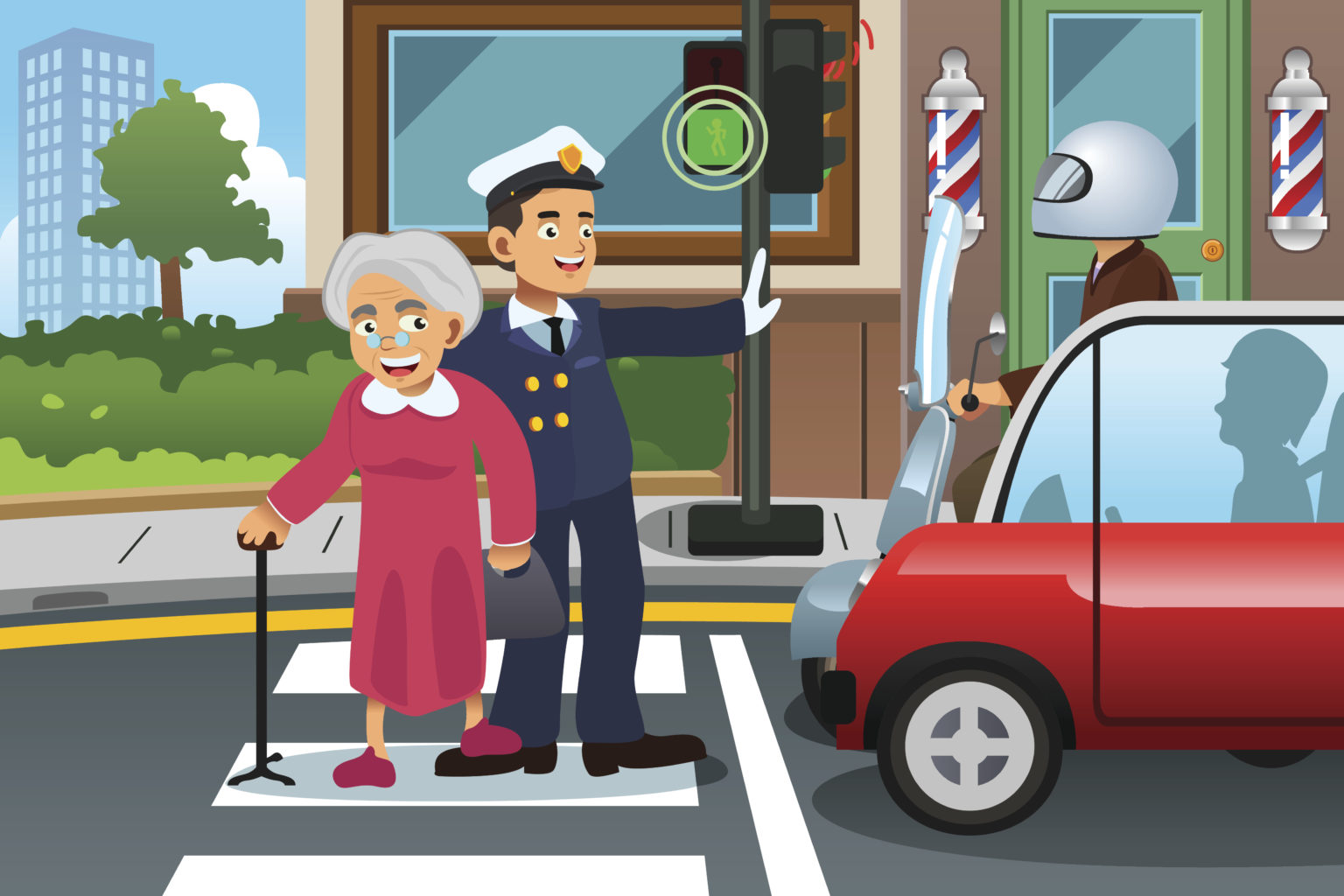A More Senior-Friendly Police Force

Beth’s father is living with Alzheimer’s disease. Beth is usually careful that he doesn’t leave the house alone, but one night she forgot to lock the door, and in the morning, Dad was gone. Should she call the police? Before she could decide, the police called her. Although Dad had quit smoking 20 years before, this morning he had gone into a convenience store and walked out with two packs of cigarettes! Now he was at the police station.
A 2019 study from the University of Portsmouth in the U.K. sheds light on a common dilemma experienced by family caregivers whose loved ones are living with Alzheimer’s disease. Dr. Karen Shalev Greene and her team found that although many of these seniors with dementia wander off and become lost, their family members hesitate to call the police, even though they fear their loved one could be in danger.
Dr. Shalev Greene’s study, which was published in Policing: A Journal of Policy and Practice, revealed that caregivers sometimes fail to report a missing senior to the police because they don’t want to appear negligent, or they might think it could be a false alarm. One caregiver whose mother was living with dementia explained it: “If she was found upstairs at a neighbor’s, for instance, and suddenly she comes downstairs and there’s sort of, you know, half the police force there, she wouldn’t be happy.”
Caregivers also reported feeling worried about how the interaction with the police would go. “I’m just anxious that he can’t communicate and he might find it quite scary,” said one caregiver wife. “It would be nice to build a relationship with the police locally, so if I said to them, ‘here’s a picture of my husband, this is him’, they’re aware and if they see him acting strangely, they don’t automatically jump on him, handcuff him or Taser him or whatever else they might do.”
In many police departments in the U.K. and in the U.S. as well, this type of training is being implemented. The American Society on Aging reports that first responders are receiving training not only about dementia, but also other age-related changes, such as mobility problems and the loss of sight and hearing. They are learning how to better communicate with elders and to have a better attitude about aging.
Police training is an important part of creating more age-friendly communities. According to the American Geriatrics Society (AGA), “For older adults with complex care needs, police officers are often the first people on the scene for a health issue or concern. When police don’t have essential information about how our health changes as we age, they may risk causing unintended harm.”
We see this in cases such as that of an elderly jaywalker who fails to respond when a police officer commands him to stop. The officer handcuffs the man for noncompliance, only to find out he has hearing loss. Or a senior driver is pulled over for erratic driving, won’t consent to a breathalyzer test, and is taken to the station—when the driver has actually suffered a stroke and should have gone immediately to the emergency room.
Police also are often first on the scene in instances of elder abuse, fraud, hoarding and other self-neglect. These situations are nuanced and require sensitivity. The AGA says police should be trained “how to identify elder abuse and distinguish nonabuse related injuries.” Officers should be knowledgeable about adult protective services and other available community resources for older adults.
Luckily, when Beth got to the police station, the officers were understanding. Having received training in the appropriate treatment of people with Alzheimer’s disease, they suggested that Beth enroll Dad in the Alzheimer’s Association Safe Return program and get him an ID bracelet so they would know who to call in any future interactions.
Source: IlluminAge AgeWise
![Health Concepts [logo]](https://healthconceptsltd.com/wp-content/themes/healthconcepts-corporate/images/logo.png)
